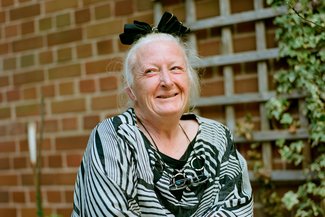
Transforming Services for Women's Futures
Our project with Changing Lives exploring how public services could be redesigned post-pandemic to better support women with multiple unmet needs.

21 Dec 2022
It’s often represented as “the most wonderful time of the year” but for many, Christmas can be an extremely difficult time.
Money worries, anxiety, loneliness, grief, difficult family relationships – these are just a few of the issues people tackle during the festive season. This year, amid the cost-of-living crisis and rising prices, more people than ever are struggling to cope.
For women with multiple unmet needs, facing inequalities such as substance use recovery or the removal of children, it can be an even harder time to navigate. Recently, we spoke to four women from our Transforming Services for Women’s Futures project about what Christmas means to them, the challenges they’ll face and how they think the public perception of Christmas needs to change. Read their reflections below:
Nici: Christmas is about family. You just want your kids around you. It definitely took its toll on me last year. Sometimes you think you’re the only one who’s without your kids. I didn’t even leave the house. No decorations or nothing. It makes you think it’s not about the presents, it’s not about decorations. It is about your loved ones.
Haley: Coming from a background of addiction and not having much, I used to obsess about getting lots of stuff and presents. I still obsess over things even now. But for the most part, Christmas since I got well is about spending it with me mam and family. It’s going to be tough for her. I struggle around Christmas. My partner died at the end of December, so it’s a very triggering time. It’s not as bad as it used to be – I’m starting to enjoy it more and more. There’s still a lot of healing to do. I’m looking forward to having the kids around. When you have a loss, it’s really hard. All you want is to see your family. By New Year’s Eve, the kids forget what they got but it’s seeing family that leaves a mark.
Nici: This will be my second Christmas since having my kids removed and my second since my partner’s dad was lost. We are celebrating this year together but without my kids. We’re going to celebrate it and push ourselves a bit more. We did nothing last year. Once you get your first Christmas without [your kids] over with, it gets easier but it’s still hard. I’m counting down until I can see my kids again.
Haley: If I didn’t get to a few meetings over Christmas, I’d crack up. I know when I’m getting messy. I’ve been good at making sure that I’m going to meetings – I need to be connecting. Having kids gets overwhelming so it’s important to keep getting support.
Steff: This will be my first year without my two bairns. My oldest has been with my mam and dad for a while but now my youngest has gone too. It would help if social services would let me know if I’ll get to see them. I’m trying to be positive and think about whether they’ll enjoy it. I’ll always be positive for the boys. It’s all about the kids.
Deb: For the last three Christmases, I haven’t celebrated Christmas due to my children being removed from my care. During my addiction, I didn’t celebrate Christmas at all. I’m going to be celebrating Christmas for the first time this year with my mum. It’s my first Christmas being clean.
Nici: In movies, you see the perfect Christmas, but there are people on their own, mums who have lost their kids, people have lost people. None of that is portrayed anywhere.
Haley: I saw something on TikTok about the truths of Christmas. They showed shopping for Christmas meals on a budget. It’s the first time I sat and thought, ‘Everyone else is exactly the same.’ I thought everyone had it all. The reality in the cost-of-living crisis is that it’s so hard. People get into debt that they can’t afford. On social media, we’re only seeing a little bit of people’s lives. We’re not seeing the debt letters coming through people’s door or the stress behind the scenes. We only see the highlights.
Deb: I totally agree with Haley and Nici. There are so many people who can’t eat on Christmas due to the cost-of-living crisis – if I’m honest, I don’t know how I would afford food without the energy grant.
Steff: There needs to be more discussion about mental health around Christmas. Even if we haven’t lost kids – it’s a very difficult time of the year. These adverts where everyone’s happy, they’re not accurate. It’s so bizarre and unrealistic. All these influencers who post these perfect lives. We need to show it’s okay not to have matching PJs.
Haley: Feeling like I’m not the only one. I think it’s so important for women to have spaces to share honestly.
Find out more about the Transforming Services for Women’s Futures project here.
If you’re struggling during the festive period, Samaritans have put together a few coping tips for Christmas.

Our project with Changing Lives exploring how public services could be redesigned post-pandemic to better support women with multiple unmet needs.

Our ongoing project with Changing Lives has been renamed to "Transforming Services for Women’s Futures" in line with the wishes of our researchers with lived experience.

The pandemic sharpened social inequalities, widening pre-existing divisions in society and significantly impacting girls and women facing multiple disadvantage.